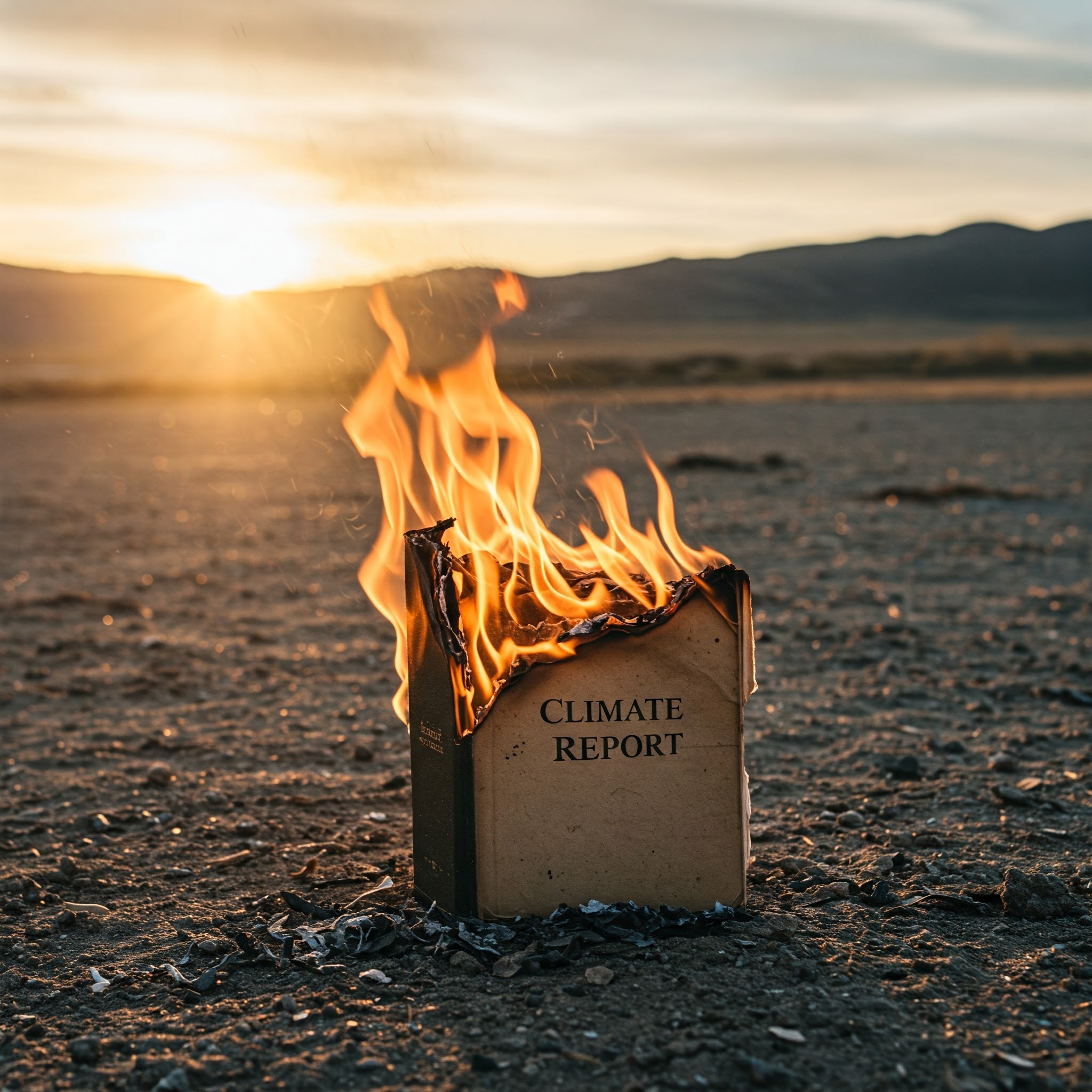Did you know the U.S. has a special report that helps communities prepare for climate change? It’s called the National Climate Assessment (NCA). The U.S. government is supposed to release a new version of this important study every few years because Congress requires it. It helps people understand how climate change affects their specific area, looking at things like really hot days, big storms, floods, or wildfires.
On Tuesday, something unexpected happened. The team of about 400 scientists and experts who were already working on the next big report, which was planned for 2027 or 2028, were suddenly told they were no longer needed. They received an email saying their work was stopped while the government rethinks the plan for the report.
Why Does This Report Matter?
The NCA is like a guidebook based on science. It looks at how different parts of the U.S. are already seeing effects from climate change, like rising sea levels near the coast or changes in rainfall. People use this information to make important decisions. For example, city planners might use it to figure out how to deal with more floods or droughts, and schools might use it to make plans for keeping kids safe during extreme heat.
Experts Worried About the Future
With the authors dismissed, no one is sure if or when the next report will come out, or what it might look like. Many scientists who were involved, or who rely on the report, are concerned.

One scientist, Dave White from Arizona State University, said the decision is worrying because the report helps so many people prepare. He stated, “Dismissing its authors and cancelling its development undercuts decades of bipartisan progress”. He also warned, “This leaves the nation more vulnerable to extreme heat, water shortages, floods and other climate-related disasters”.
Rachel Cleetus, from the Union of Concerned Scientists, was one of the authors dismissed. She explained why the local details in the report are so critical: “It’s important to understand what and who is at risk… Not just in a general sense, but in a very localized sense. Without that information, we’d be flying blind”.
Another expert, Erin Sikorsky, put it simply: “Pretending climate risks don’t exist doesn’t make them go away, unfortunately. This move puts Americans, our communities, and our security at risk”.
What Happens Now?
The government stated it is reviewing the “scope” or plan for the report. For now, the future of this key climate assessment, which helps the country understand and prepare for climate change, remains unclear.
This article is based on the following articles:
https://www.theguardian.com/us-news/2025/apr/29/trump-fires-climate-report-contributors
https://www.cnn.com/2025/04/29/climate/trump-dismisses-climate-report-authors/index.html
https://www.npr.org/2025/04/29/nx-s1-5380816/climate-assessment-authors-released

Background Information
What is Climate Change?
- You’ve probably heard of “climate change” or “global warming.” It refers to the long-term changes in Earth’s temperatures and weather patterns. While Earth’s climate has changed naturally in the past, the changes happening now are much faster and are mainly caused by human activities.
- Think of the Earth wrapped in a blanket of gases (called greenhouse gases). These gases trap heat from the sun, which keeps our planet warm enough to live on. Human activities, especially burning fossil fuels, release extra greenhouse gases, making the blanket thicker. This traps too much heat, causing the Earth’s average temperature to rise (global warming) and leading to bigger changes in climate, like more extreme weather.
What are Fossil Fuels?
- Fossil fuels include coal, oil, and natural gas. They formed deep underground from plants and animals that died millions of years ago.
- We burn fossil fuels to power cars, generate electricity, and heat homes. Burning them is the main way humans release extra greenhouse gases that cause climate change. This is why discussions about climate change often involve talk about reducing the use of fossil fuels.
Who are the Scientists and Experts Writing the Report?
- The people writing reports like the National Climate Assessment (NCA) are experts from different fields.
- Many are scientists who study specific things like the oceans, the atmosphere, weather patterns, or how heat affects health.
- Others might be economists (studying money and jobs), engineers (designing solutions), or community leaders (like tribal leaders ) who understand how climate change affects people in real life. They work together to gather the best information.
What Does “Peer-Reviewed” Mean?
- When scientists write about their research or findings, like for the NCA, they often have it “peer-reviewed”.
- This means that other scientists who are experts in the same field carefully read the work before it’s published. They check if the methods are good, if the conclusions make sense, and if the information is accurate. It’s like having knowledgeable classmates check your homework for mistakes before you hand it in, helping to make sure the final report is reliable.
What is a Presidential “Administration”?
- In the U.S., when a new President is elected, they bring in a team to help run the government. This team, led by the President, is called the “administration” (like the “Trump administration” mentioned in the articles ).
- The administration makes decisions about how government agencies work and what policies the country should follow during that President’s time in office.
Why Might People Disagree on Climate Reports or Actions?
- While most scientists agree that climate change is happening and caused by humans, people and governments sometimes disagree on what to do about it, or how urgently action is needed.
- These disagreements can happen for many reasons. Some people might be more focused on the economic costs of switching away from fossil fuels, while others are more focused on the environmental damage and health risks caused by climate change. Sometimes, political views influence how people see the issue or the scientific reports about it.

Debate/Essay Questions
- Is the National Climate Assessment essential for the U.S. to prepare for the future, or can communities figure things out on their own without this specific report?
- Considering the costs and potential effects on jobs (like in the fossil fuel industry), how much priority should the government give to funding and creating reports like the NCA to prepare for climate change?
Please subscribe to Insight Fortnight, our biweekly newsletter!
